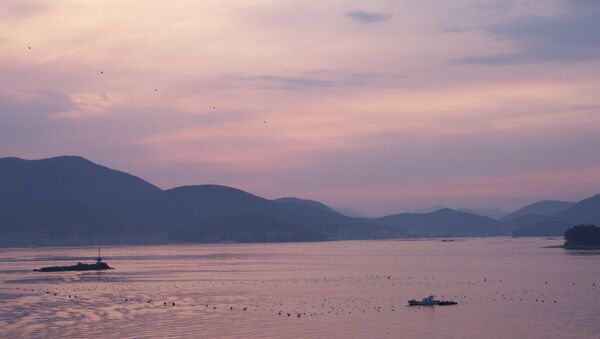MOSCOW, January 2 (Sputnik) – Stories describing rampant slavery on dozens of islands in Sinan County, South Korea’s rugged southwest coast, were made public on Thursday after the Associated Press (AP) conducted a series of interviews and investigation into the issue.
Kim Seong-baek, a man who was held against his will on a salt farm on a Siniu island and forced to work without paid, told AP about horrors of his enslavement on the remote island.
According to AP, two-thirds of South Korea’s sea salt is produced at more than 850 salt farms on numerous islands in Sinan County. Kim’s case prompted a nationwide investigation and found 63 workers receiving virtually no pay, working on the salt farms. Three-quarters of the salt farm workers had mental disabilities.
Some farmers, however, consider themselves as saviors of the disabled and homeless. “These are people who are neglected and mistreated. What alternatives does our society have for them?” – said Hong Chi-guk, a 64-year-old salt farmer in Sinui, as quoted by AP. Several freed disabled slaves said they would return to the salt farms, saying that life on the farms was still better than life on the streets or in crowded homeless shelters.
What? #Slavery in South #Korea? Disabled slaves on South Korean islands http://t.co/0SeFznJVUJ (from @AP) pic.twitter.com/XVf0YsdYfZ
— gokhantweets (@loudthinker1) 2 января 2015
It is difficult to determine the exact number of people enslaved on salt farms due to the remoteness of the farms and the closeness of island communities. According to the police and human rights activists, sometimes whole villages know about the slaves, but the tight island communities prefer to keep quiet about the problem.
“The police chief would tell me that I’d eventually come to understand that this was how things on the island worked,” said Cho Yong-su, a doctor who worked at the Sinui Island public health center from 2006 to 2007.
Kim eventually escaped the farm after he managed to write a letter to his mother, who lives in Seoul. She gave the letter to the police, who then found the farm. Kim’s former boss, Hong Jeong-gi, is now waiting to appeal a three and a half year prison sentence next week.





